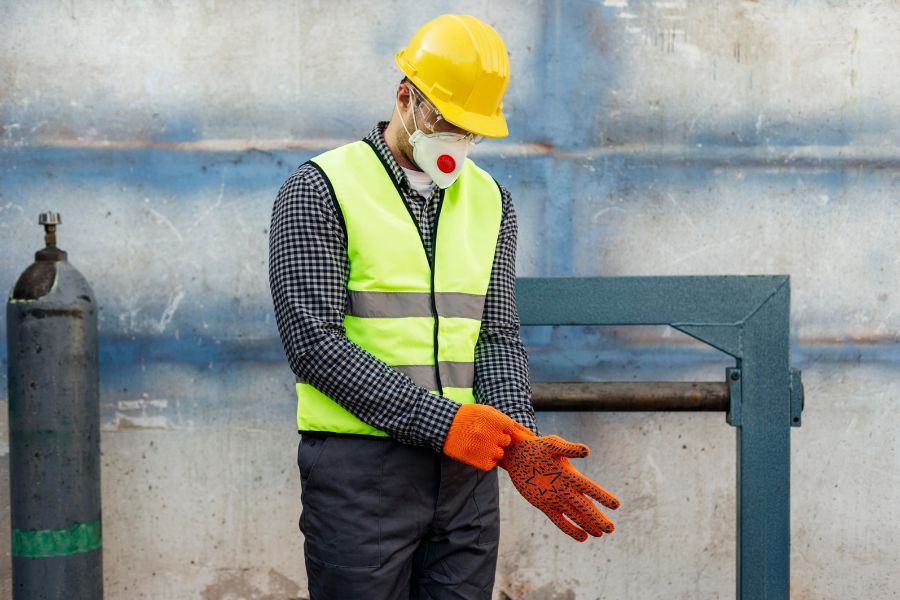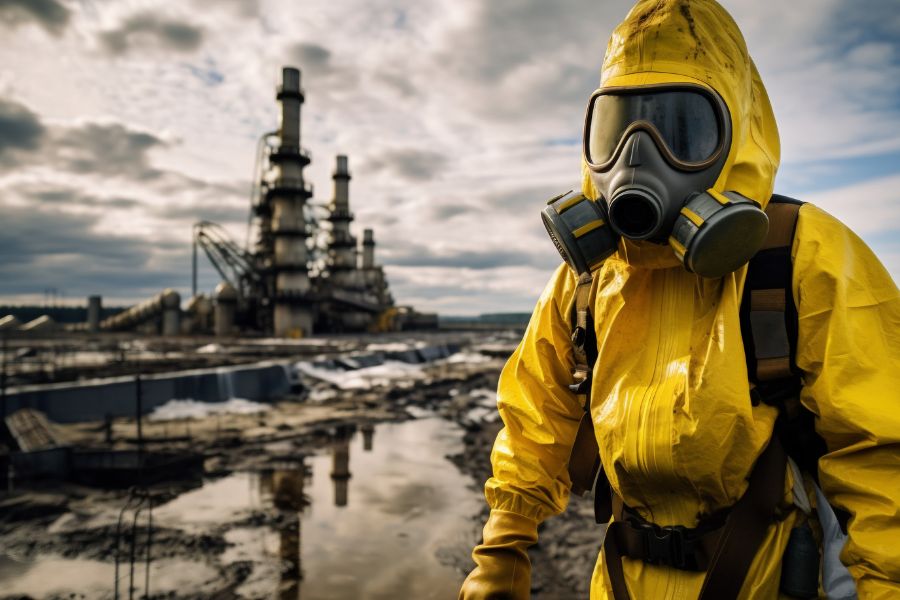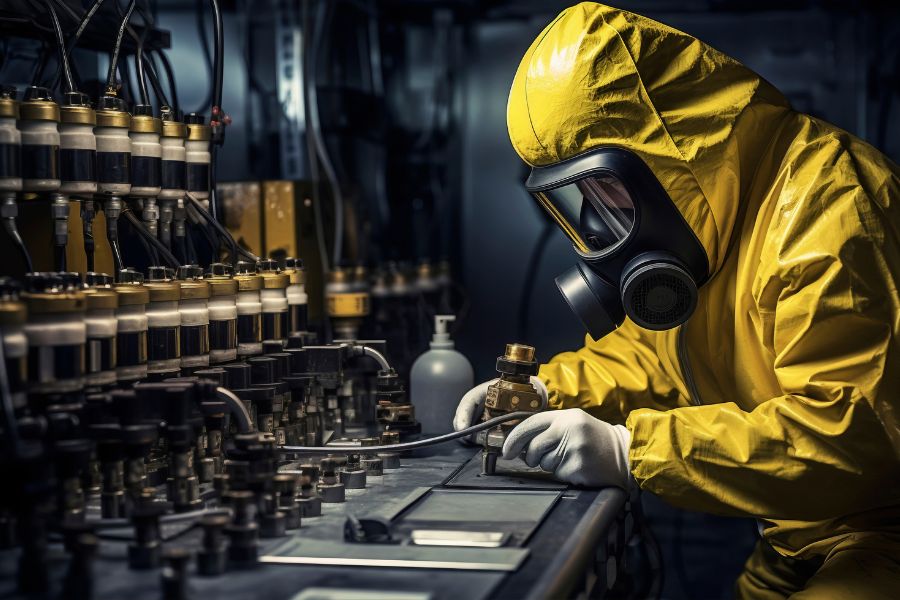Exploring the AMPP Cathodic Protection Level 1 Program
Cathodic Protection (CP) is like a superhero shield that stops metal structures from rusting away. It’s super important in places like oil and gas facilities, ships, and utilities, where things can easily corrode. The Cathodic Protection Level 1 program is like the beginner’s guide to understanding and taking care of these protection systems. It teaches people how to install, keep an eye on, and look after these shields so they stay strong and keep structures safe from rust.
What is CP 1 certification?
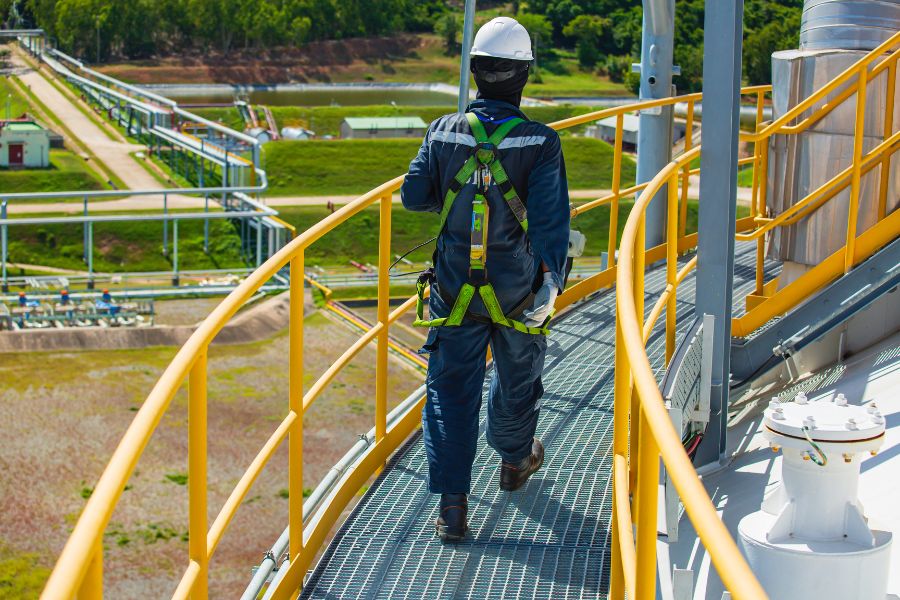
Cathodic Protection Level 1 certification is like a stamp of approval for people who work with something called cathodic protection. Think of it as an entry ticket into the world of keeping stuff safe from corrosion, like rust.
Here’s what it means and why it’s important:
Definition and Significance
CP 1 certification is given out by groups like NACE (Now Known as AMPP) International, which is a big deal in the corrosion control world. It basically says that someone has learned the basics of how to protect stuff from rusting through cathodic protection techniques. This certification is super important because it ensures that cathodic protection systems actually work and keep things safe.
Requirements and Benefits
- Training Requirements: To get CP 1 certified, you gotta go through a special training program. This program teaches all the important stuff about cathodic protection through classes and hands-on practice.
- Examination: After finishing the training, there’s a big test. This test checks if you really understand how cathodic protection works and if you can apply it correctly.
- Field Experience: Just learning in a classroom isn’t enough. You also need to spend some time working in the field, under the guidance of experienced folks. This helps you understand how things work in real-life situations.
- Benefits:
- Industry Recognition: People in the corrosion control world know and respect CP 1 (Cathodic Protection Level 1) certification. It shows that you know your stuff.
- Compliance: Lots of rules and regulations require certified folks to handle cathodic protection jobs to make sure everything’s done safely and correctly.
- Quality Assurance: Employers trust CP 1 certified folks because they know they’ve got the skills to do the job right. This means better quality and safer installations.
- Career Advancement: Getting CP 1 certified can open doors for better jobs and opportunities to learn more in the field of corrosion control. It’s like a stepping stone to higher levels of certification and expertise.
So, CP 1 certification isn’t just a piece of paper. It’s a ticket to a career in keeping things from rusting away, and it’s a mark of trust and quality in the industry.
Cathodic Protection Training
Understanding Why Training in Cathodic Protection Matters: Keeping structures safe from corrosion requires knowing the ins and outs of cathodic protection. Training ensures that professionals can spot corrosion risks, design protection systems, and keep them running smoothly. Without proper training, mistakes in setting up protection can cause damage, risking safety and the structure’s strength.
What Training for CP 1 Certification Covers
For those aiming for CP 1 (Cathodic Protection Level 1) certification, there are plenty of training options available. These programs teach the basics like how electrochemistry works, what causes corrosion, the parts of protection systems, and the rules and laws that apply. Hands-on training might include going out into the field to do surveys, practicing installing protection, and learning how to maintain equipment properly. This mix of theory and practice helps cement the knowledge and skills needed for the job.
What Are the Two Types of Cathodic Protection?
When it comes to protecting metal structures from rusting, there are two main ways to do it:
Impressed Current Cathodic Protection:
Impressed current cathodic protection is like giving the metal a shield against rust. It uses an outside power source to create a protective electrical force that keeps the metal from corroding. This method is handy in places where the environment naturally makes metal rust faster or when you need to protect a big area.
Galvanic Cathodic Protection:
Galvanic CP works by sacrificing a piece of metal to protect the main structure. This sacrificed metal, like zinc or magnesium, rusts instead of the main structure, keeping it safe. It’s often used in smaller areas or where it’s hard to use an outside power source.
Applications and Differences Between the Two Types:
Choosing between impressed current and galvanic cathodic protection depends on a few things like where the structure is, how big it is, and how much money you have. Impressed current systems give you more control, but they need more attention to keep them working right. On the other hand, galvanic systems are easier to set up and take care of, but they might not work as well in really harsh environments or for long-term protection.
Cathodic Protection Level 1 Course in India
If you’re interested in learning about cathodic protection courses in India, you’re in luck! Several institutions in India offer courses on this topic like Corcon to help meet the needs of various industries. These courses cover the basics of cathodic protection, teaching you important principles, techniques, and the best ways to apply them.
Let me introduce you to a couple of options:
- NACE (Now Known as AMPP) International: They’re a big name in corrosion control worldwide. In India, NACE (Now Known as AMPP) offers Cathodic Protection Level 1 certification courses through approved training providers. These courses follow NACE’s high standards and are designed to give you the essential knowledge and skills you need for cathodic protection.
- Corcon: This institution offers comprehensive training on preventing and controlling corrosion. Their programs include CP1 (Cathodic Protection Level 1) certification courses too. The focus here is on practical skills, getting you ready to tackle real-world situations in industries where corrosion is a concern.
So, if you’re looking to get into cathodic protection, these courses could be just what you need to get started!
How do I get CP1 certification?
Are you ready to embark on your journey towards CP1 (Cathodic Protection Level 1) certification Let’s walk you through the steps:
- Training Provider: Begin your quest by exploring Corcon, your trusted provider for CP1 (Cathodic Protection Level 1) certification programs. Delve into our offerings, evaluating our course content, esteemed instructors, and esteemed reputation within the industry.
- Enroll in Our CP1 Certification Course: Once you’ve identified Corcon as your preferred provider, secure your spot in our CP1 (Cathodic Protection Level 1) certification course. Our comprehensive curriculum encompasses corrosion fundamentals, cathodic protection principles, survey techniques, and practical equipment operation.
- Engage in Interactive Learning: Immerse yourself in our engaging classroom sessions and hands-on training modules. Participation in these activities is paramount for honing your cathodic protection skills effectively.
- Prepare Thoroughly for the Certification Exam: Equip yourself for success by familiarizing yourself with the exam format and content specifications provided by Corcon. Utilize our study materials and practice exams to solidify your understanding and readiness.
- Conquer the Certification Exam: When you’re fully prepared, demonstrate your proficiency by sitting for the Cathodic Protection Level 1 certification exam administered by Corcon. Expect multiple-choice questions designed to assess your grasp of cathodic protection principles.
- Attain Certification and Elevate Your Career: Upon achieving a passing score, you’ll be bestowed with the prestigious CP1 (Cathodic Protection Level 1) certification from Corcon. This certification serves as a testament to your competency in fundamental cathodic protection practices, opening doors to advancement within the corrosion control industry.
Before embarking on your certification journey, ensure you meet our prerequisites, which may include relevant educational qualifications, industry experience, or prior training in corrosion control. Additionally, complete our application process to kickstart your transformative journey with Corcon.
How hard is the CP1 test?
The difficulty of the CP1 (Cathodic Protection Level 1) certification exam can be different for everyone. It depends on how much you’ve prepared, what you already know, and your experience. The exam covers a lot of topics, but if you’ve studied hard, you should be ready to do well.
To boost your chances of passing, make sure you really understand the main ideas, practice solving problems, and get to know the industry standards. It also helps to talk to people who have experience and join study groups for extra help.
Closing Insights
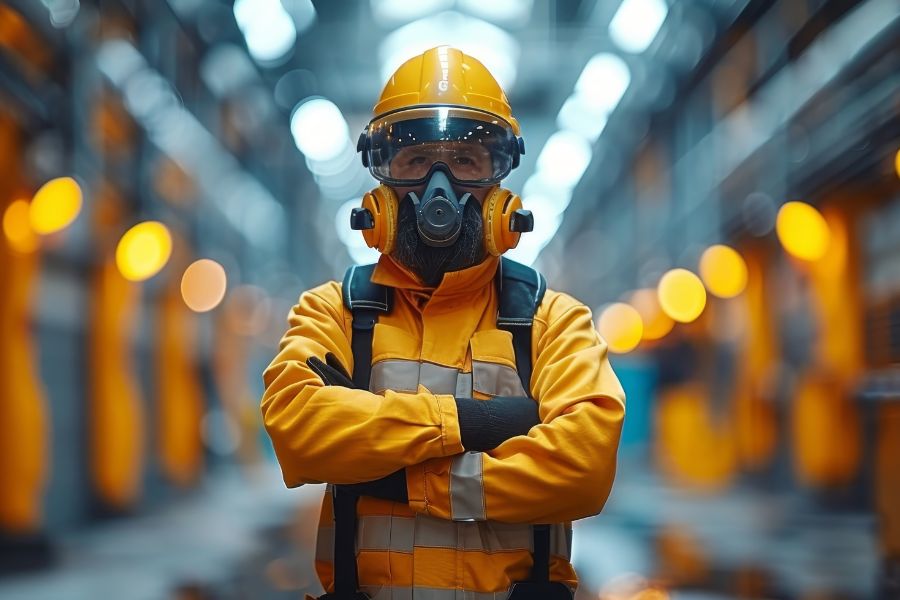
In essence, the CP Level 1 (Cathodic Protection Level 1) Program offered by Corcon presents a valuable pathway for individuals seeking certification in cathodic protection, a critical measure in combatting corrosion across diverse industries. Attaining Cathodic Protection Level 1 certification signifies proficiency in safeguarding essential structures and equipment against corrosion-induced deterioration. Through diligent training and dedication, aspiring cathodic protection specialists can embark on a gratifying career dedicated to ensuring the safety and reliability of vital infrastructures.
FAQs: Frequently Asked Questions
1. What is CP 1 certification, and why is it important?
Cathodic Protection Level 1 Program refers to the first level of certification in cathodic protection, indicating a fundamental understanding of the principles and practices involved. It’s essential because it ensures that professionals possess the necessary knowledge to effectively protect metal structures from corrosion, thereby extending their lifespan and ensuring safety.
2. How can I undergo cathodic protection training for CP 1 certification?
Several organizations offer training programs specifically designed to prepare individuals for Cathodic Protection Level 1 certification. These programs typically cover topics such as corrosion theory, cathodic protection system design, installation, and maintenance.
3. What are the two types of cathodic protection, and how do they differ?
The two main types of cathodic protection are impressed current and galvanic cathodic protection. Impressed current systems require an external power source to drive the protective current, making them suitable for larger structures or those in high-corrosion environments. Galvanic cathodic protection, on the other hand, relies on the natural potential difference between two metals to provide protection and is often used for smaller structures or in less corrosive environments.
4. Are there any specific cathodic protection courses available in India for CP 1 certification?
Yes, there are various cathodic protection courses available in India that are tailored to meet the requirements for Cathodic Protection Level 1 certification. These courses are offered by reputable institutions and cover the necessary curriculum to prepare individuals for the certification exam.
Image Reference: Freepik
Disclaimer: All trademarks, logos, and brand names are the property of their respective owners. All company, product, and service names used in this website are for identification purposes only. Use of these names, trademarks, and brands does not imply endorsement.
